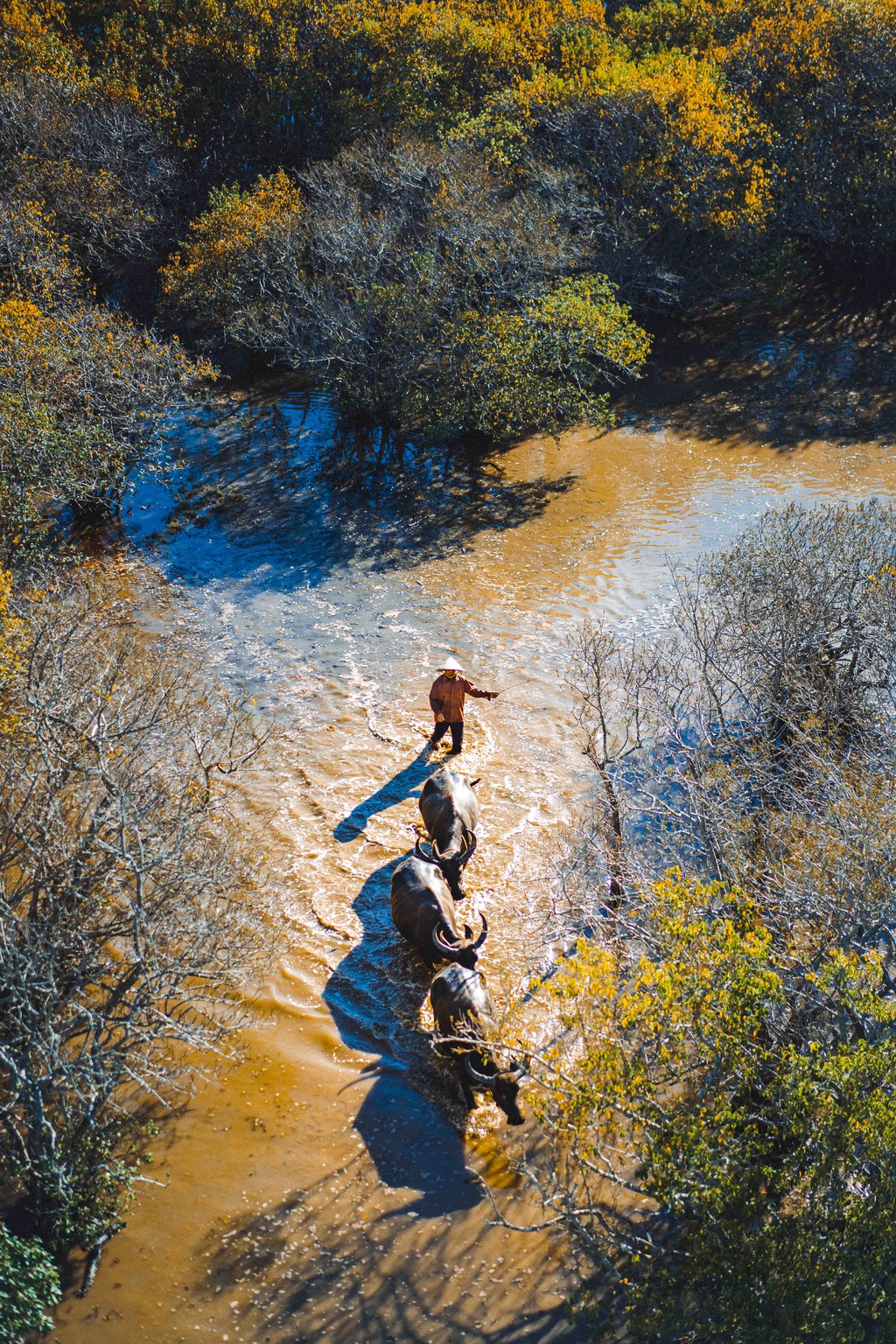In the local language, "rú" means forest, and "chá" refers to a species of tree occupying 90% of the area in the mangrove area. The tree has shallow roots, with the cavity becoming a shelter for small crabs. Ru Cha forest is like a front line, shielding the mainland in front of Thuan An beach.
During the changing season, green leaves turn into brilliant yellow, creating an unforgettable natural masterpiece in the hearts of visitors. The forest attracts many young people and is a creative inspiration for photographers every fall.
Only about 15 km from the city center, Ru Cha is an attractive meeting point for tourists coming to the ancient capital of Hue.
From afar, visitors will easily see the wild, soaring, intertwined clusters of cha trees. The best time to visit the forest is from February to October. During this time, the cha trees in the forest bloom, and the whole forest changes its color, wearing a romantic coat. When it rains or in strong winds, the leaves will fall into the water, creating a yellow carpet.
Ru Chai also is a place for aquaculture and many people make their living doing it. Previously, entering the forest was not easy for tourists as they had to wade in water and take boats. Now they can choose a motorbike to travel on concrete roads or rent a small boat from locals to explore the forest.
The white tower in the middle of the forest is a place to observe and manage Ru Cha, and a good spot for photos.
Visitors should walk on the small road or row a boat to admire the beauty of the hundred-year-old roots, and enjoy the cool and gentle atmosphere in autumn. They can also pray for peace at the ancient temple worshiping Duc Thanh Mau.
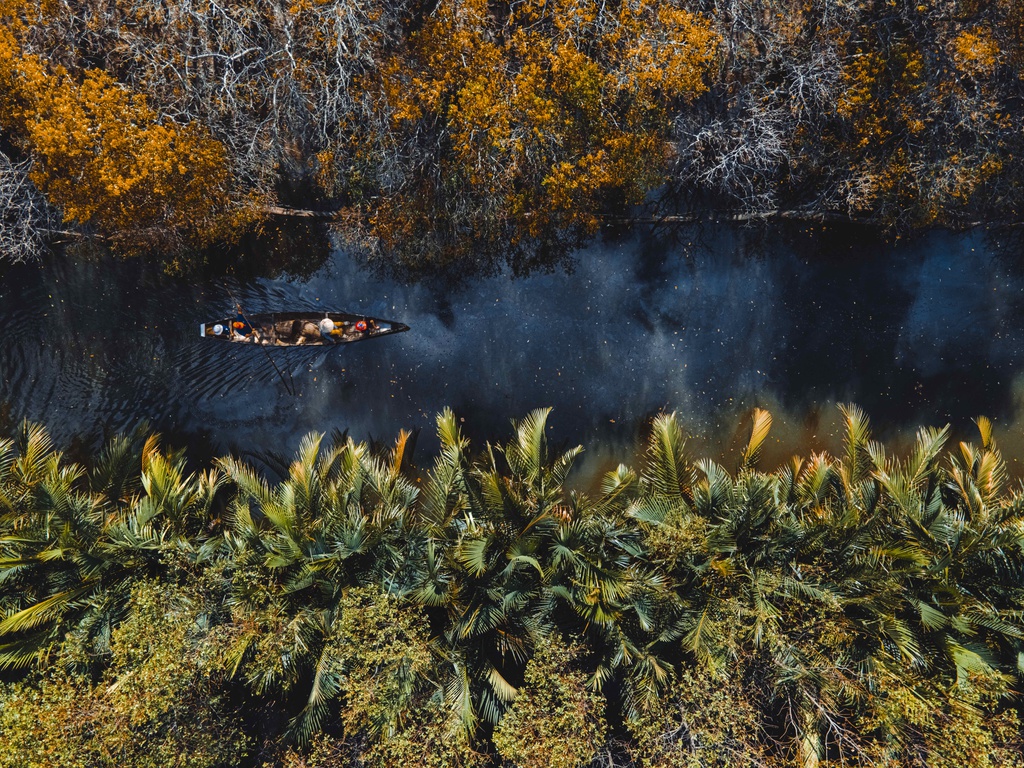 |
||
|
|
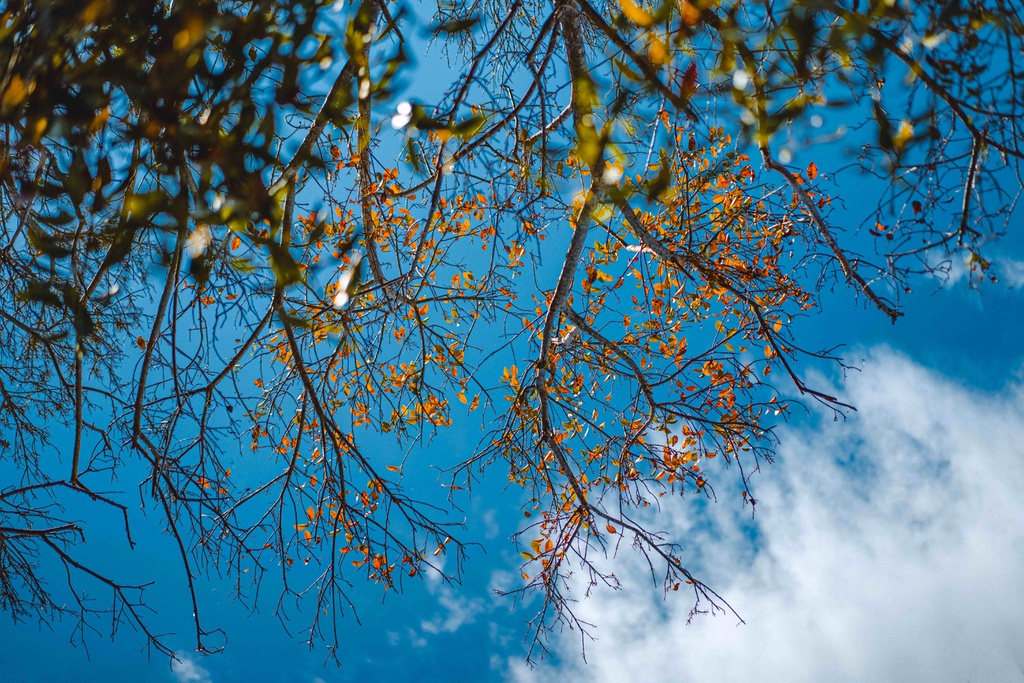 |
||
|
|
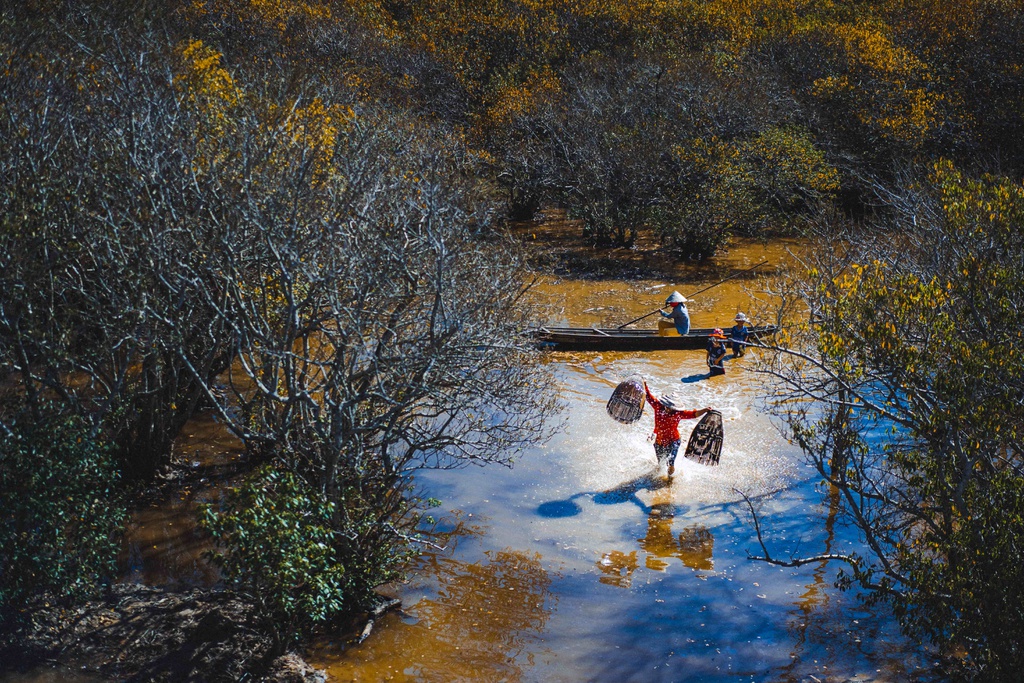 |
||
|
|
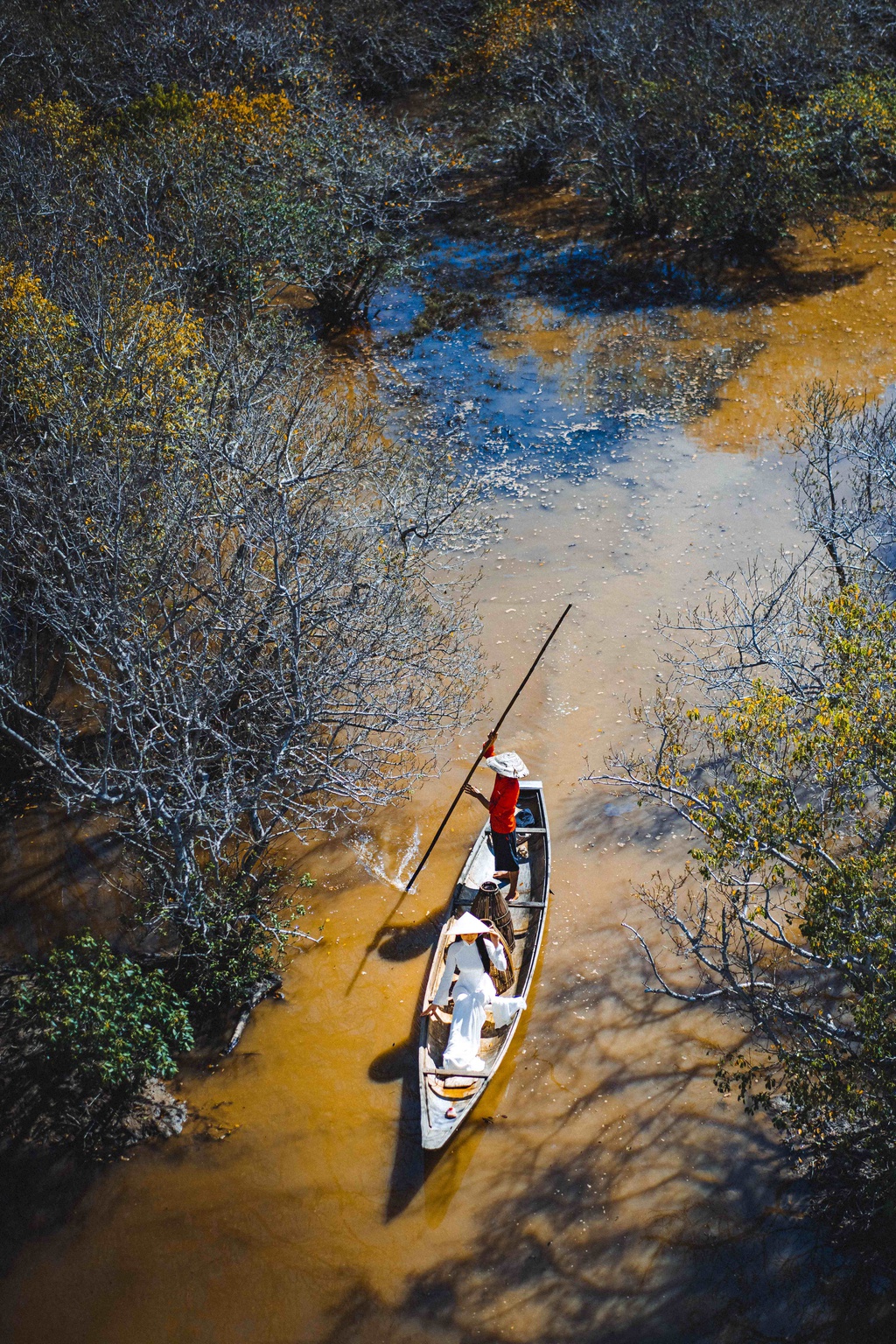 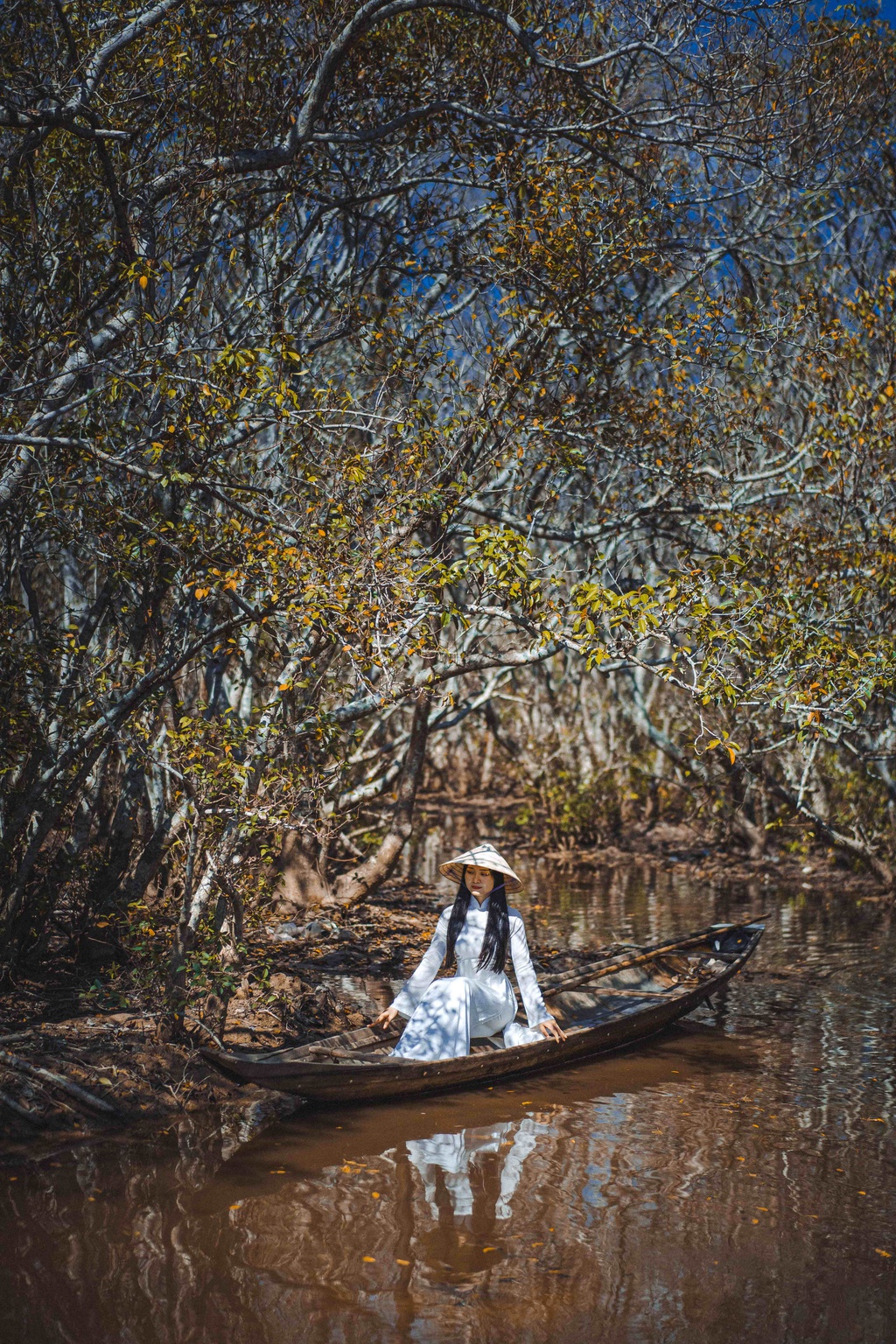 |
|
Photos: Zing |
Linh Ha

Life in the forest of a Saigon’s young couple
At 6:30 in the morning, after having breakfast, An went to the kitchen to make coffee. Thuan came back from the garden, and the couple sipped a cup of coffee together in theỉ log house, overlooking the garden full of flowers.



